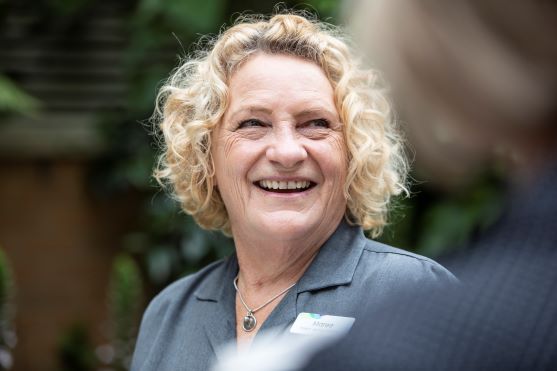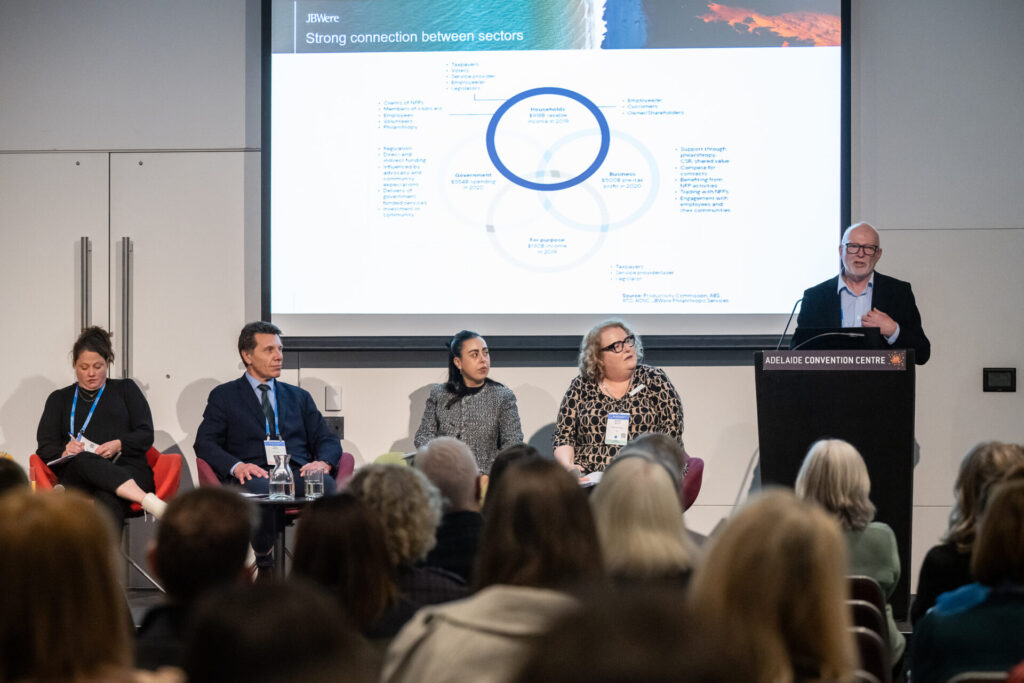$150bn will be inherited this year: JBWere Bequest Report

Latest research on inheritance trends, the Bequest Report from wealth management company JBWere, makes compulsive reading for the philanthropic sector. While figures show that inheritance to family, friends and charity is expected to reach at total of $5.4 trillion by 2044, only 1% of wealth transfer in Australia currently goes to charitable causes. The report considers the impact of these findings across the sector and opportunities for growth.
The findings on how and to whom people leave their wealth provide valuable insights not only for not-for-profits and how the proportion of bequests in wealth transfer might be grown, but also implications for women’s giving and New Gen, who are the greatest recipients of inherited wealth.
The report was authored by John McLeod to quantify the intergenerational wealth transfer in Australia with updated data, examine the options available for individuals leaving inheritances and encourage deeper thought about what their lifetime’s achievements could accomplish.
The report says that while the growth in the future value of total inheritances is locked in by demographics, it is how they are used that could create great gains for Australian society.

Key findings include:
• $150 billion will be gifted through inheritances this year, but only $1.3 billion of this will be given to charity. It’s estimated that this will total $5.4 trillion over the next 20 years, up from the 2017 estimate used by the Productivity Commission of $3.5 trillion. Up to 75% the inheritances will be inherited by women
• Health and medical research, animal protection, welfare and international aid are some of the top causes receiving donations through bequests.
• For-purpose organisations should understand the scale of charitable bequests in terms of their annual growth rate (double that of mass market giving) and quantum (double that of PAFs).
• The majority of inheritances will go to the partner if still in a couple (38%) or the next generation if single (51%). A further 10% goes to other family and friends and 1% to for-purpose organisations.
These figures compare to 1% ($229m) in New Zealand, 3.7% ($7.6bn) in the United Kingdom and 4.4% ($69bn) in the United States. The report reveals roughly 6.5% of wills in Australia include a gift to charity. This compares to 5% in New Zealand, 10% in the US and 13.7% in the UK.
NAB Executive for Private Wealth, which includes JBWere Australia, Michael Saadie said: “We hope this report helps support a shift in consideration of the impact bequests can have in helping support worthwhile causes and create lasting legacies through charitable and for-purpose organisations.”
There is an opportunity to radically grow levels of giving, including structured giving with Private Ancillary Funds (PAFs) potentially growing from just over 2,000 to more than 50,000, and subfunds even more substantially. The report expects strong growth in family foundation and subfund giving while living, enhanced through inheritance.
Bequests are still the highest margin form of income in the for-purpose sector. Within the fundraising mix, says the report, bequests are the most valuable, providing the highest returns on investment (around 25 times compared to 3-4 times for overall fundraising) and are usually unrestricted (only an average of 9% has a defined use).
John McLeod said that we need to normalise talking about what kind of legacy we want to leave. “The reality is that most of us probably sit down three times in our life for an hour with a solicitor to write our wills. Unless giving is on your mind during what some people find an uncomfortable conversation, or you’re prompted to talk about it, leaving a proportion to charitable causes is probably not going to happen.”
He said that financial and legal advisers could be more incentivised to engage clients in the conversation and that a national giving campaign would help change the cultural narrative to a broader audience.
“One of the discussions at dinner parties once we get past property and what school your children go to, should be ‘what are you going to do with what you’ve built up in your life after you die?’ Let’s normalise all of that,” he said.
“The younger generation are up for the discussion, so let’s start having it earlier and build it into our everyday conversations. We need to talk more about giving broadly, but this is a way to have those important big conversations with your family about life, death and what happens next.
“Families have built up a whole lot more than properties and their super. They’ve made connections with communities, they’ve got values, they want their children to have purpose in their lives – what better way to talk about that early on with the people you care most about.
“It’s a perfect way to not only express your values but pass them on to the next generation of your family. Wealth transfer is not just about assets.”
Read the full report on the JB Were website.